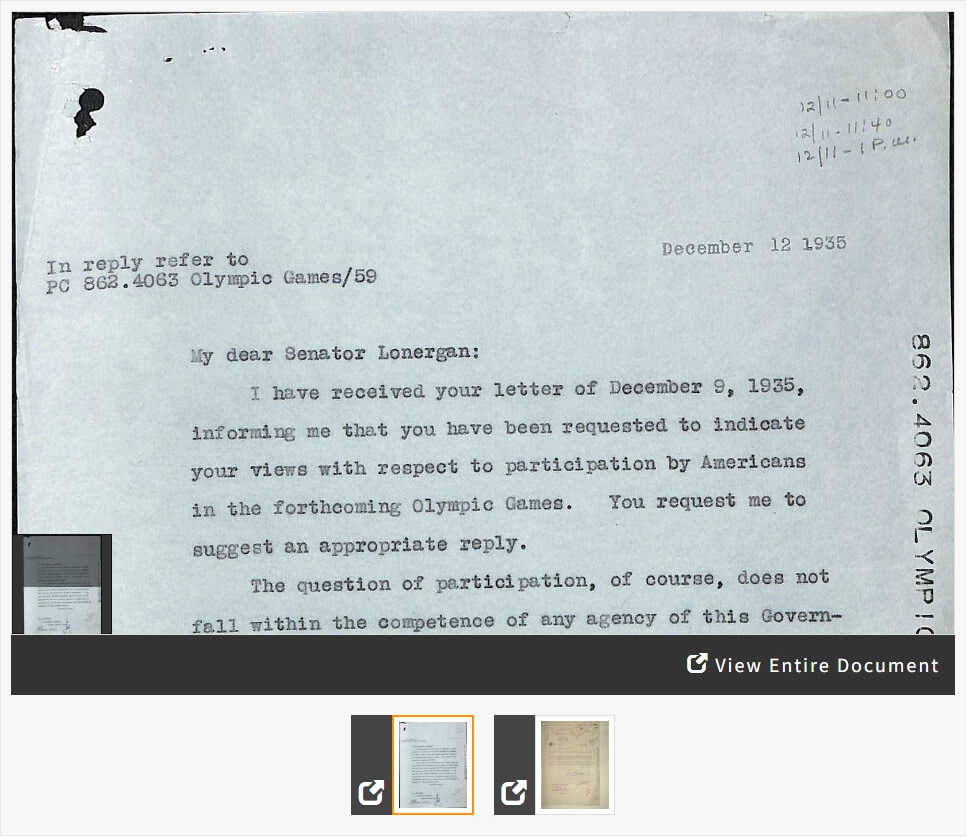Arguments in Favor and Against Participating in 1936 Olympics
Focusing on Details: Compare and Contrast

About this Activity
- Created by:National Archives Education Team
- Historical Era:The Great Depression and World War II (1929-1945)
- Thinking Skill:Historical Issues-Analysis & Decision-Making
- Bloom's Taxonomy:Analyzing
- Grade Level:Middle School
In this activity, students will analyze arguments for and against U.S. participation in the Olympic games. Students will begin to understand what Americans knew about the Nazi regime’s anti-Jewish legislation and the Roosevelt administration’s stance about the role of politics in sports.




